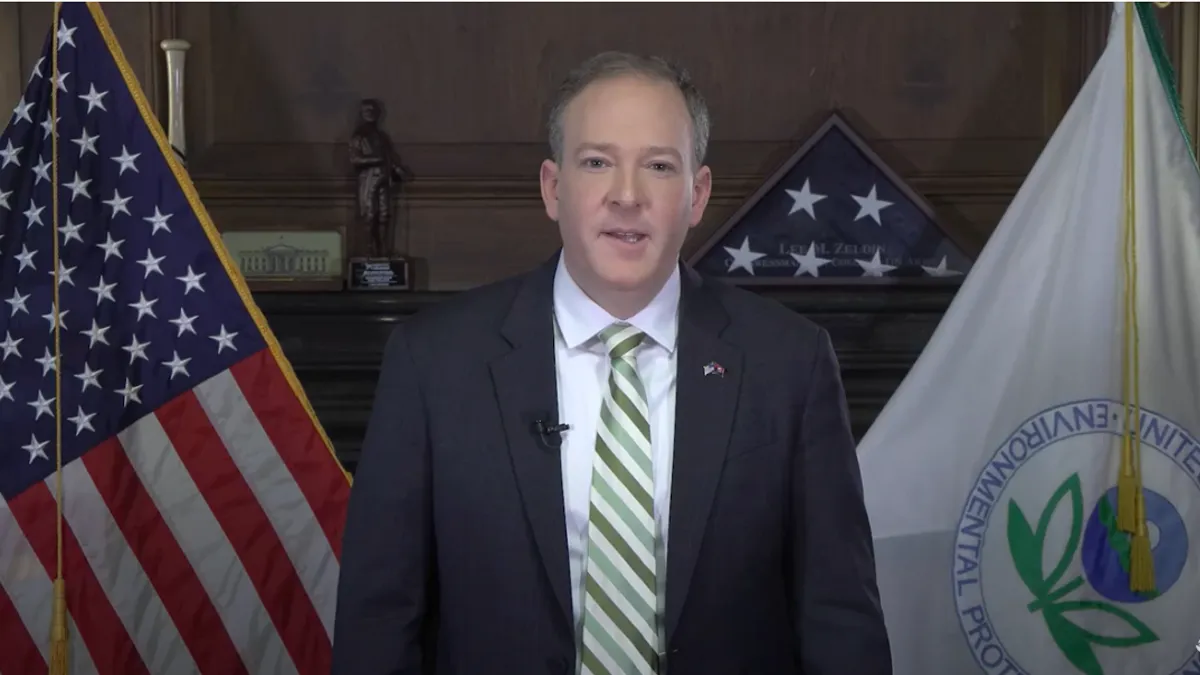When Austin, Texas, officials developed a plan to build a mobility hub in the Georgian Acres neighborhood last year, they relied on feedback from members of the community.
The city wanted the hub to provide first- and last-mile options to help affordable housing residents get to their jobs, according to Christina Willingham, smart mobility division manager for Austin’s Transportation Department.
City officials wanted to understand where people who live and work in the neighborhood were traveling, what barriers to transportation exist and what types of mobility services they would want, Willingham said in an email.
To encourage the neighborhood's residents to complete surveys or answer questions in person, the city offered $10 gift cards for their participation. Dozens of residents accepted the offer and received gift cards in exchange for their input last March and April.
"If you’re going to be talking about equity, you have to understand who the experts are, and the experts are the people who have the lived experiences," said Willingham during an interview. "You have to value their time, and you have to pay them for their time in order to get their expertise."
Many other cities are also creating incentives using various forms of compensation to achieve more equitable community engagement. Traditionally, cities have given residents gift cards, food, transportation vouchers or child care support, said Jason Reece, an assistant professor of city and regional planning at The Ohio State University.
Robust and equitable engagement practices produce better solutions to community issues, Reece said, because the practices are centered on community members' true needs rather than assumptions made by technical experts, government officials, or industry representatives. Getting that input, said Reece, can help build buy-in and support from community members and allow them to feel ownership in the initiative.
But for community members who are economically marginalized, the demands and stressors associated with poverty can make engaging in such efforts challenging without some type of incentives, he said. Reece and another Ohio State researcher provided fresh produce and grocery store gift cards to food-insecure families they engaged with when trying to understand community perceptions surrounding Columbus, Ohio’s autonomous shuttle program, part of the city’s Smart Columbus initiative.
In Austin, the mobility hub project was a collaboration among the Austin Transportation Department, the University of Texas at Austin and a local nonprofit, Jails to Jobs, with funding coming from a National Science Foundation, U.S. Department of Energy and U.S. Department of Homeland Security civic innovation challenge grant. The city aims to have the hub operating sometime this spring, Willingham said.
The Austin Transportation Department does not have a specific policy regarding compensation in exchange for public participation and has not conducted a study testing the effectiveness of the approach, said Jeff Stensland, a transportation department spokesperson. The department has used this approach on a limited basis and funded it through outside sources such as grants, he said.
Through that engagement, Austin learned that many community members said they would use public transportation if it were available at a community mobility hub, he said. Many also stated that shared bikes, e-bikes, and a neighborhood shuttle would help, and that transportation affordability was a barrier, Willingham said.
"We reached across a diverse group of people that maybe had not been contacted before," said Willingham in an interview. "Maybe they were motivated by the money but also felt valued by their time."
Why community engagement matters
In general, smart city departments have been a bit slower to provide compensation for community engagement compared with other city departments and researchers, said Reece. The slowness to adopt what he considers a best practice is a reflection of the field’s industry orientation and "top-down" past practices, said Reece.
Government decisions are often made without direct consultation with the people most affected, resulting in unintended consequences for well-meaning city initiatives, said Heidy Persaud, director of transportation equity at the Chicago-based nonprofit Center for Neighborhood Technology.
Sometimes there are policy solutions that sound logical, important and even equitable on paper, but it’s not what the community wants or prioritizes, or there may be an unintended consequence, said Libero Della Piana, senior strategist at Just Strategy, a nonprofit that develops strategies for social justice movements.
Engaging impacted communities in such conversations "is really essential to get equity right," said Della Piana.
Community engagement will be especially important as historically large amounts of money coming from the $1 trillion bipartisan infrastructure legislation that passed in November will soon fund transportation projects throughout the country, said Persaud.
Transit agencies should be planning how to use the new funds to serve their customers, a clientele that is often low-income, disabled, an immigrant, or a member of a racial minority group, she said.
"This is a really critical moment to get this right," said Persaud. "Engaging and planning with [customers] should always be the most consistent and prioritized initiative."
Engagement is more than cutting checks
Seattle plans to analyze and create a citywide process around compensating members of the community for their planning input as, part of its commitment to racial equity and social justice, the city’s Office for Civil Rights said in a statement. Several city departments have provided such compensation in the past.
Last November, Seattle’s Department of Transportation and its Office of Planning and Community Development announced they would both offer $5,000 to community-based organizations and small businesses that provide information for the development of the city’s transportation and comprehensive plans. The agencies will also offer $30,000 for larger efforts developing the plans, including helping to come up with policy recommendations and forging partnerships, said Ethan Bergerson, a city transportation department spokesperson.
The city’s civil rights office has historically compensated individuals for community input and engagement, especially around its policy work, the office said in a statement. Last year, the office compensated people who participated in the creation of a community task force report, which recommended policies the city could adopt to improve criminal legal system outcomes.
"Our practice is that when we convene community on specific topics, we want to honor individuals for their time, wisdom, and lived experience, people who can develop the most effective solutions because they have experienced the challenges firsthand," the office said in a statement.
Implementing a system to compensate community members for their input can pose challenges to local governments, said Persaud. City officials often need to overcome bureaucratic hurdles to provide such payments. They also need to figure out which compensation method works best for their specific community and population, she said.
Cities could also better engage with residents by collaborating with existing institutions, such as schools, libraries and religious institutions. They should also encourage people to attend meetings by providing basic necessities such as food and child care and addressing language barriers and accessibility concerns, such as ensuring methods for collecting input consider those who are visually impaired or in wheelchairs, said Persaud.
Compensating individuals can boost public participation, but it’s a "mixed bag," said Della Piana. Giving a consulting firm thousands of dollars for providing its expertise on a policy or project while not paying members of the community could be considered an inequity. Compensating community members could also boost participation and engagement. But real, authentic engagement is not a transactional relationship, it's a long-term sense of investment.
"Does the community feel like they have power over these decisions?" asked Della Piana. "That’s a much bigger motivator than a gift card."




















